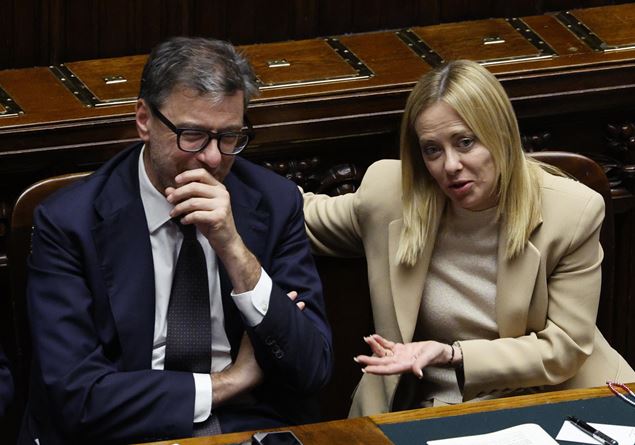The government’s latest economic measure, according to the opinion of Bank of Italy, Istat and the Parliamentary Budget Office, closely resembles the philosophy of the hosts in the Betrothed: equidistant between the poor and the rich, but with one knee slightly bent towards the latter. This is how Manzoni described it, and this is how the government seems to have adopted it: a prudent balancing act, more useful for the calm of the markets than for the relief of the citizens.
Calling it a “maneuver” is a bit pretentious. It would be more correct to say maneuver, maneuver, maneuvers: an exercise in high accounting to keep the Brussels technocrats and their parameters happy, those that miraculously disappear when it comes to military spending. Inside there are sacrosanct provisions which fortunately are maintained – such as the single allowance for families – but also many evaporated promises. The Housing Plan, much heralded in the summer, has disappeared. The Fornero reform on pensions, which should have been “cancelled”, was instead tightened: later exits, higher retirement age, no quota 103 or other shortcuts. And Salvini, who once invited Italians to “spernacchiarlo” if he had not abolished it, today is silent, perhaps fearing that a long, choral, thunderous Totò-style raspberry will rise from Bolzano to Marsala.
Furthermore, all three bodies agree on one point: the 2026 Budget Law “has little impact on inequalities”.
The flagship measure, the cut by two points of the second Irpef rate from 35% to 33% for incomes between 28 and 50 thousand euros, will concern around 14 million taxpayers, with an average benefit of 230 euros net per year, 19 euros per month: little thing, in short, a pizza (Margherita) and a beer with cover charge. Furthermore, as Istat explains, over 85 percent of the resources will go to the richest families (rich so to speak, the concept of “wealth”, especially in Italy, is very questionable, also given the size of the tax evaders): those in the highest fifth of the income distribution will collect on average 411 euros, compared to 102 euros for the poorest families. In relative terms, for all social classes the gain on family income will be less than 1 percent. Inflation in Italy for agri-food is equal to 3.6 percent, so to speak.
Economy Minister Giorgetti, a Northern League champion (much appreciated by Draghi), defends the choice to protect average incomes. But as we have seen, it is an almost symbolic provision, which moreover clashes with the need to inform the progressive tax system enshrined in the Constitution (article 53). Now we expect the usual assault on diligence in Parliament by the various lobbies, even if this time there isn’t much of a bone to pick. The owner of the Treasury also invites parliamentarians to “take into account the effects of spending” before proposing amendments, recalling that it is an 18.7 billion maneuver – “the wedding with figs”, as he defines it (without adding that the saying also defines them as buckets) – with reduced resources but in line with the constraints of Brussels and with the objective of guaranteeing the sustainability of the debt. And here a debate could be opened on the need to support a debt that was already very sustainable in itself (we are certainly not like in 2011) well before the rating agencies promoted it further. We should resort to Keynes but let’s forget it. The roles seem almost reversed: a “frugal” government and a Bank of Italy that invites us to be less parsimonious, especially with the less well-off classes, who are suffering terribly. Via Nazionale, in fact, in the role of Robin Hood, speaks of a “modest change in disposable income” and specifies that the tax advantages are concentrated “in the top two fifths of the population”. Even the social assistance measures envisaged in the budget, observes the deputy head of the Economics and Statistics Department, Fabrizio Balassone, “produce modest effects on the most fragile families”.
The Parliamentary Budget Office is even more clear: 408 euros of average savings for managers, 123 for employees, 23 for workers. Stuff that not even the Sheriff of Nottingham. The maximum benefit is concentrated among those who earn over 50 thousand euros, i.e. 8 percent of total taxpayers. There is no trace of a wealth tax on the super rich, which has been inflaming the debate in France for months (after all, Prime Minister Meloni has publicly declared that as long as the right is in power there will never be anything as it is something for communists – even the very liberal and austere Luigi Einaudi wanted it, as a one-off, and dedicated a precious little book to it, but let’s leave it aside in this case too). The Court also points out a possible side effect of the new tax on short-term rentals: the increase in the rate from 21 to 26% could push many owners into the black economy.
Behind the figures, the most bitter fact remains: 5.8 million citizens have given up on healthcare in the last year due to lack of resources, over a million more than in 2024.


